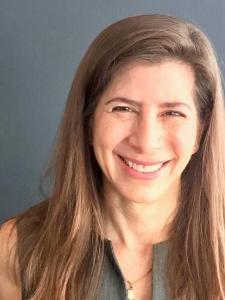Non-profit organisation offers free after-school math tutoring to minimise learning disparities between students and provide equal access to quality support
Whether or not you have a knack for numbers, life often requires a basic grasp of mathematics, from managing one’s finances to baking a cake. But learning math is daunting for many young people. Some lose their confidence and drop it, only to find themselves at a lifelong disadvantage. When a country’s workforce lacks general math skills, its economy and competitiveness can suffer.
Sweden’s math scores had been falling for years when a 30-year-old Swedish engineer named Johan Wendt created Mattecentrum in 2008. Bored with his job, he remembered the joy he had experienced as a student, tutoring his upstairs neighbours’ children in math.
He quit his job and founded a non-profit organisation called Mattecentrum to offer free after-school math tutoring to students of all backgrounds.
Mattecentrum aims to minimise disparities, giving students equal access to quality support while making math easier and more engaging. It sets out to even the field when not every child has a parent (or neighbour) available to help with homework.
Meeting one-to-one
A group of close to 450 volunteers offer free in-person math labs in 22 different cities across Sweden at schools and libraries. They have provided more than 35 000 tutoring hours per year, in Swedish, Danish, Arabic, and English.
Mattecentrum’s General Secretary Ellen Eriksson, says, “Students can drop in or book an appointment, and pick a volunteer. We let the student lead the conversation, then we ask questions, and fill in the gaps.”
Many students attend these labs because they are struggling to keep up at school. Others have the opposite problem—they are ambitious but not sufficiently challenged in class. In the latter case, says Eriksson, “We can fast forward them, and keep their motivation up.”
Since its creation, Mattecentrum has continued to grow, helping students aged 6 to 26 with math and other STEM subjects (Science, technology, engineering, and mathematics).
Mattecentrum won second prize in the general category of the European Investment Bank Institute’s 2013 Social Innovation Tournament, which recognises entrepreneurs who are making a social, ethical, or environmental impact.
Personalised online help
Mattecentrum’s website offers free, user-friendly lessons in a range of mathematical topics, with theory, videos, and exercises.
Students can also access personalised help online, joining video meetings with volunteers a according to their preferred language. In 2022, these digital math labs provided more than 3 000 hours of individualised homework assistance.
“Pluggakuten” is Mattecentrum’s digital homework assistance platform, with an open chat for members. The forum is anonymous, which encourages even the most insecure students to jump in and ask questions.
Eriksson explains, “Asking a question can make you quite vulnerable, especially in math, because we have strong norms around math, and who is allowed to become good at it.”
All digital methods combined, Mattecentrum offered nearly 2 million minutes of unique interactive assistance in 2022, for free. Around one-eighth of those minutes were given to students outside of Sweden—in the United States, the Philippines, Saudi Arabia, and beyond.
By providing a set of different tools, Mattecentrum seeks to ensure that any student can find the model that best fits their needs. “One of our unique points is enabling students who are comfortable in different ways,” says Eriksson. “Some want to meet up for one on one, some want to ask a question by typing.”
The generosity of volunteers
Mattecentrum receives funding from a mix of sources, including grants, donations, and sponsorships. But dedicated volunteers are the biggest key to the organisation’s success.
“We have a team of very enthusiastic volunteers,” notes Eriksson. “It’s comprised of teachers who are no longer working but still want to engage, university students, and professionals—sponsors who want to engage in our community by volunteering as well.”
One volunteer, a retired woman named Marie who used to help her own children with math, says, “The most rewarding aspect is to see young people solve their math problems on their own and only assist when they get stuck, working together to find a solution.”
Expanding the initiative countrywide
Over the years, Mattecentrum has launched new projects, expanded to other geographical regions of Sweden, and partnered with various institutions.
The organisation counts on schools and libraries to spread the word about its offerings and share networks with other NGOs. “We know there are a lot of young people not coming to us, who gave up a long time ago,” says Eriksson. Their goal is to reach a maximum number of students, for the greatest results.
The effort pays off when she gets positive feedback, such as an email received from a student’s father last summer. He wrote that his daughter had been falling behind in math until she started using Mattecentrum’s online mathbook, which they studied together at home. Then the young woman started attending the physical math labs. After taking her final exams, she became one of the highest ranked students in her school. Her father wrote, “It says a lot, the kind of impact that you have. Thanks for the help!”
Since then, Johan has moved on, and co-founded another company, Irriot, to address water conservation (also a SIT finalist, in 2021).
